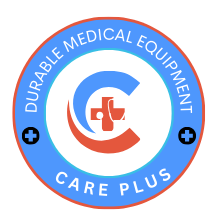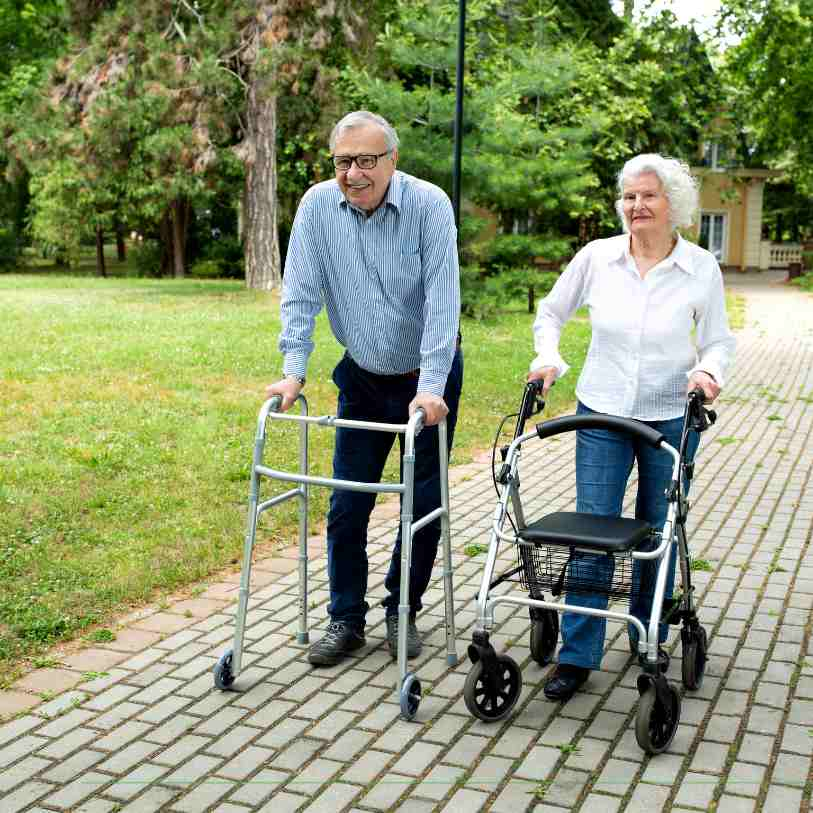How to Choose the Right Mobility Aid for Seniors
Introduction
Choosing the right mobility aids for seniors can transform independence, comfort, and safety in everyday life. As aging affects balance and strength, many seniors rely on mobility aids like walkers, canes, or wheelchairs to perform daily tasks safely and confidently. According to Manningham Medical Centre, proper equipment selection improves daily living and helps older adults remain active longer.
1. Understanding Mobility Aids for Seniors
Mobility aids for seniors are designed to support movement, stability, and confidence. These include walking sticks, rollators, scooters, and wheelchairs — each catering to different levels of mobility. As noted by Rosewood Nursing, selecting the right aid depends on factors such as physical condition, environment, and personal comfort.
Proper evaluation by a healthcare provider or mobility specialist ensures the device supports posture, reduces the risk of falls, and enhances daily living activities.
2. Types of Mobility Aids and Their Benefits
There are several types of mobility aids for seniors, each serving specific needs:
- Canes and Walking Sticks: Great for minor balance support during daily tasks.
- Walkers and Rollators: Ideal for seniors needing more stability while walking.
- Wheelchairs and Mobility Scooters: Perfect for those with limited lower-body strength.
- Grab Bars and Transfer Aids: Support safe movement within the home.
According to Flint Rehab, using the right mobility device reduces fatigue and increases confidence during daily living activities.
3. How to Assess a Senior’s Mobility Needs
Before choosing any mobility aid, it’s essential to assess the senior’s balance, coordination, and strength. Home Team Missouri recommends observing how they perform daily tasks like standing up, walking short distances, or climbing stairs.
The right device should feel natural, support posture, and not strain muscles. Consulting a rehabilitation expert or occupational therapist — as shared on TBI Rehabilitation — helps ensure the equipment suits their physical needs.
4. Safety and Comfort Considerations
When evaluating mobility aids for seniors, comfort and safety are top priorities. Check the following features:
- Adjustable handles and frames
- Non-slip grips
- Durable materials
- Smooth wheel movement
According to AccessAble Living, comfort plays a crucial role in long-term use. Devices that fit properly encourage continued mobility and reduce dependency on others for daily living support.
5. Mobility Aids That Promote Independent Daily Living
Seniors thrive when they can complete daily tasks independently. Products from trusted providers like Arthritis Supplies and HMedical Inc. include ergonomically designed rollators, wheelchairs, and bathroom safety products tailored for senior comfort.
The Highpoint Residence highlights how customized mobility aids encourage movement and confidence among residents, improving quality of life.
6. How to Maintain Mobility Aids for Longevity
Maintaining mobility aids for seniors ensures safety and extends equipment life. Clean wheels regularly, check for wear on grips, and tighten loose screws. Meyland Smith suggests routine maintenance at least once a month, especially for high-use items like rollators or scooters.
Regular upkeep not only protects the investment but also ensures reliable performance for daily living activities.
7. Professional Support and Product Selection
Always seek expert guidance before buying mobility aids for seniors. Licensed providers like HBRHC and AccessAble Living help match products with physical ability and budget.
For more comparison options, platforms like SiteLike.org and ABC Directory can help you discover reputable DME suppliers.
Explore More
- Best Walkers and Rollators for 2025 Seniors
- Top Wheelchairs for Home Mobility Support
- Daily Living Aids That Improve Comfort
- How to Maintain Mobility Equipment for Seniors
What are the best mobility aids for seniors in 2025?
Walkers, rollators, and mobility scooters are among the most effective mobility aids for seniors, providing stability and independence in daily tasks.
How do I know which mobility aid is right for my needs?
Consult a healthcare provider who can assess physical ability, lifestyle, and living environment before recommending the right mobility aids.
How often should mobility aids be maintained?
Experts like Meyland Smith recommend monthly inspections to ensure safety and comfort.
Do mobility aids really help with daily living?
Yes, the right mobility aids improve daily living by promoting independence and reducing the risk of injury.
Can I buy mobility aids online?
Yes, several verified suppliers like Arthritis Supplies and HMedical Inc. offer quality mobility aids for seniors online.




